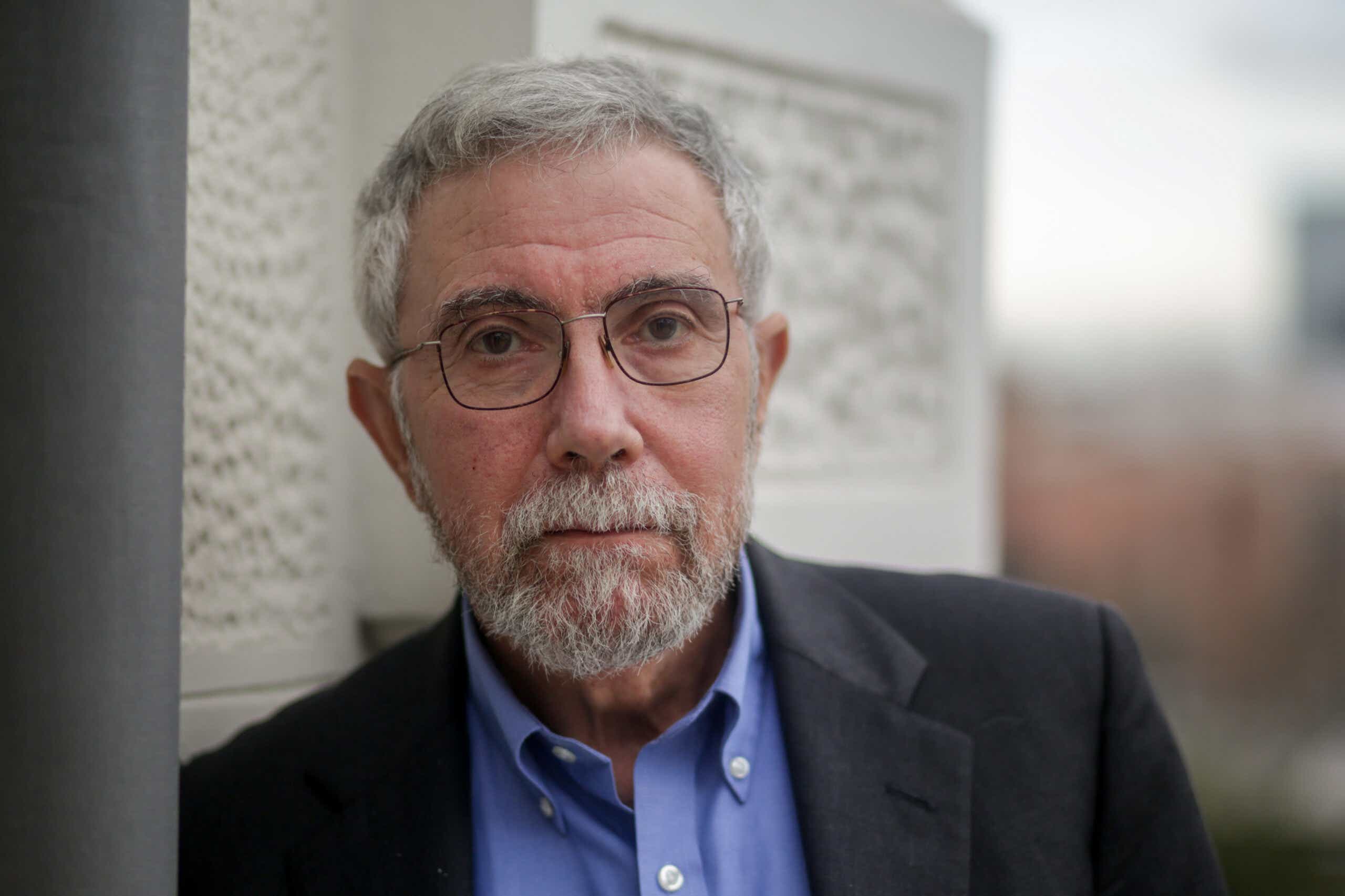As the pandemic rages on and stimulus measures expire, millions remain out of work and many are slipping into poverty. Now, just days away from an election between two candidates with drastically different economic policies, many of us are wondering what the outcome will mean for an economic recovery.
Wake-Up Call asked Nobel Prize-winning economist and New York Times columnist Paul Krugman to weigh in. He touched on the stimulus packages we can expect under each nominee, the future of a slow-growing job market and how a disputed election would be “disastrous” for the economy.
Wake-Up Call: Can you discuss what a coronavirus recovery package under a Biden administration may look like?
Krugman: It’d be released in two phases. First, there’d be something a lot like the HEROES Act House Democrats passed in the spring: resumed large benefits for the unemployed, plus lots of aid to state and local governments, basically to help get everyone through a period when the pandemic is still keeping the economy weak.
Then a lot of investment, mostly financed by borrowing. Lots of infrastructure spending, some of it climate-related, plus a lot of spending on children and child care. And Obamacare 2.0: more generous subsidies to make health care affordable.
If President Trump wins, what can Americans expect for a future stimulus?
Trump seems to have reverted to Republican orthodoxy: tax cuts, tax cuts, tax cuts, even though the [tax cuts in] 2017, which was supposed to produce a huge investment surge, didn’t. So I don’t expect much in the way of useful stimulus if Trump wins.
Can you break down what Biden’s tax and spending plans are, and as you’ve previously written, why do you think they’ll do more good for the economy than Trump’s plans?
Beyond pandemic relief, it’s mainly infrastructure and health care. Fix the bridges, support renewable energy and get us close to universal health coverage. The reason this should work better than Trump policies is that the latter were based on giving corporations a break and hoping they’d invest — which they didn’t. Biden would just go out there and invest directly.
What do you expect in the next jobs report? And how do you see employment rates playing out over the next few months?
We’re probably looking at more job gains, maybe at a pace that would look good in normal times. But we’re still 11 million jobs in the hole, so it will actually be deeply disappointing. I worry a lot about the next few months: people are exhausting their savings, and state and local governments are going to be laying off lots of workers.
If there’s a disputed election, what effect will that have on the markets?
On the markets, God knows. On the real economy, disastrous: business investments that would make sense under Biden wouldn’t [make sense] under Trump and vice versa, so if we don’t know who won, businesses will just sit on their cash, with very ugly economic implications.
Trump has claimed that a Biden presidency would be disastrous for our 401(k)s. Is there anything to that?
History and recent developments say no. Stocks have done as well or better under Dems as Republicans, and they didn’t decline as Biden’s odds of winning went up. More fundamentally, who cares? The stock market is not the economy.
What are your thoughts on the progressive push to see Elizabeth Warren made Treasury secretary? As well as frontrunner, Lael Brainard?
I’m fine with either — and know both pretty well. Warren might possibly be better used in a regulatory role, but she would be fine at Treasury. Brainard has one of the best track records at the Fed, and she’s an expert on international affairs, which is going to be important. The Democrats have a really deep bench here.
Can you tell me a little about your new book, Arguing with Zombies, and what motivated you to write it?
My point was that most arguments about economics involve one side arguing in bad faith, promoting zombie ideas that should be dead but are still eating people’s brains. I didn’t expect to publish into a zombie apocalypse, but the response to Covid perfectly fits the book’s theme.
Written and reported by Rachel Uda.
This interview has been edited.









